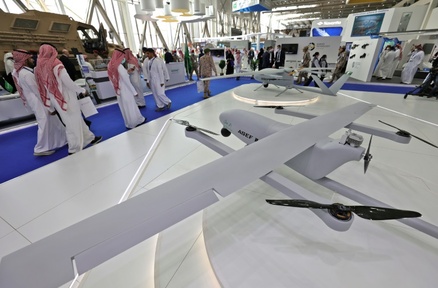On side effects once again – Zvi Bar'el in Haaretz:
‘On Wednesday, Joe Biden seemed to have found a path to the Gulf states’ hearts. He got the United Arab Emirates to agree to urge members of OPEC+ (which includes Russia) to increase oil production.
For a moment, the announcement by the UAE reduced oil prices. But on Thursday, they resumed their surge.
OPEC+ members were in no rush to give up this bonanza. They announced that the soaring prices stem from geopolitics rather than an oil shortage, so there’s no reason to increase production. At the same time, Saudi Arabia announced plans to buy an unusual quantity of diesel fuel, which is surprising for a country that exports all the diesel it produces.
Meanwhile, The Wall Street Journal reported that Emirati and Saudi leaders refused to accept phone calls from Biden, who sought to convince them to increase oil production to lower prices on global and especially European markets, thereby reducing the harm sanctions on Russia are causing Europe.’
(…)
‘Both Saudi Arabia and the UAE influence their Arab allies, and both have open accounts with Biden. Riyadh’s began immediately after the murder of journalist Jamal Khashoggi in 2018, when Donald Trump was still president. That killing put the kingdom in Congress’ crosshairs, and later in the new president’s as well.’
(…)
‘But then Russia invaded Ukraine. The UAE, Saudi Arabia, Bahrain, Qatar and Israel all opted not to sign a letter supporting a Security Council statement condemning Russia (which Russia vetoed), thereby granting Moscow a moment of satisfaction in the conflict.
Three days after this resounding slap, Washington changed its tone, and what had been “complicated” turned out to be simple. With American support, in late February the Security Council deemed the Houthis a terrorist organization, over the objections of some administration officials who feared that this could thwart chances for a diplomatic solution to the war in Yemen.
Yemen, which had previously been a focus of Biden’s diplomatic efforts and a freezing of arms deals with Saudi Arabia and the UAE, will have to wait. Granted, UN Secretary-General Antonio Guterres once called that war “the world’s worst humanitarian disaster,” but it has been superseded by the humanitarian disaster in Ukraine, which requires the world to increase oil production to support the sanctions on Russia.’
(…)
‘This week, while Russia was bombing Ukrainian cities, its defense contractors displayed their wares, including tanks and helicopters, at an arms expo near Riyadh. One Ukrainian company also showed its goods there, and when the expo ended, the merchandise was returned to the battlefield.
The UAE is also signing arms deals with Russia. Putin’s buddy Sergey Chemezov, the billionaire owner and CEO of Russia’s biggest arms conglomerate, Rostec, said in September that he aimed to launch a factory in the UAE to produce Russian planes and other weapons.
Neither Riyadh nor Abu Dhabi plan to replace its American planes and other arms with Russian substitutes, but they both talk about “diversifying” their arms suppliers, thus reducing their total dependence on the United States in light of the turnabout in Washington’s traditional Mideast policy. This sea change has led to the American withdrawal from Afghanistan and Iraq, bolstering Iran’s position.
“Our impression is that the American work plan for last year pushed the Middle East to the back burner. But Biden and his administration, which were focusing on Russia and China, apparently ignored the degree of influence the region has over Chinese and Russian policy,” a European diplomat who served in the Middle East for years told Haaretz.’
(…)
‘The New York Times reported that at least 38 Russian tycoons under sanctions live in Abu Dhabi. Their private planes and yachts have already landed or anchored there. They have bought or rented luxury homes and are enjoying a life of ease and lavishness.
More importantly, the UAE announced that it will not impose sanctions on either the tycoons or Russia without a decision by the UN Security Council – something that has no chance of happening given Russia’s veto power.
The big question is whether Washington will impose sanctions on Gulf banks that do business with or implement transactions for Russian entities or individuals under sanctions. Such a step would naturally also hinder the financial transactions and business dealings that the Gulf states conduct with the United States and Europe. From there it’s a short step to an oil and gas war à la the oil boycott that shook the world in the 1970s.
Faced with this possibility, the U.S. administration is trying to rebuild the Mideast scaffolding that it started to dismantle, as it strives to shore up its sanctions policy without destroying the global economy. But its desire to talk with the Saudi and Emirati crown princes will have to be accompanied by military and diplomatic commitments. This includes unfreezing the F-35 deal if the UAE is still interested, a painful reconciliation with Mohammed bin Salman that would restore his honor in Washington, and close cooperation in managing regional policy.’
Read the article here.
Winners of the war till now: UAE and Mohammed bin Salman and of course defense contractors.
In Yugoslavia some soldiers sold their weapons to the enemy for cash and/or drugs.
This is better: first show the merchandise at the arms expo near Riyadh for future buyers, so they know what they can order, then return it to the battlefield for immediate use.
Concerns about humanitarian disasters in Yemen has been postponed indefinitely. But of course, that’s old news.
